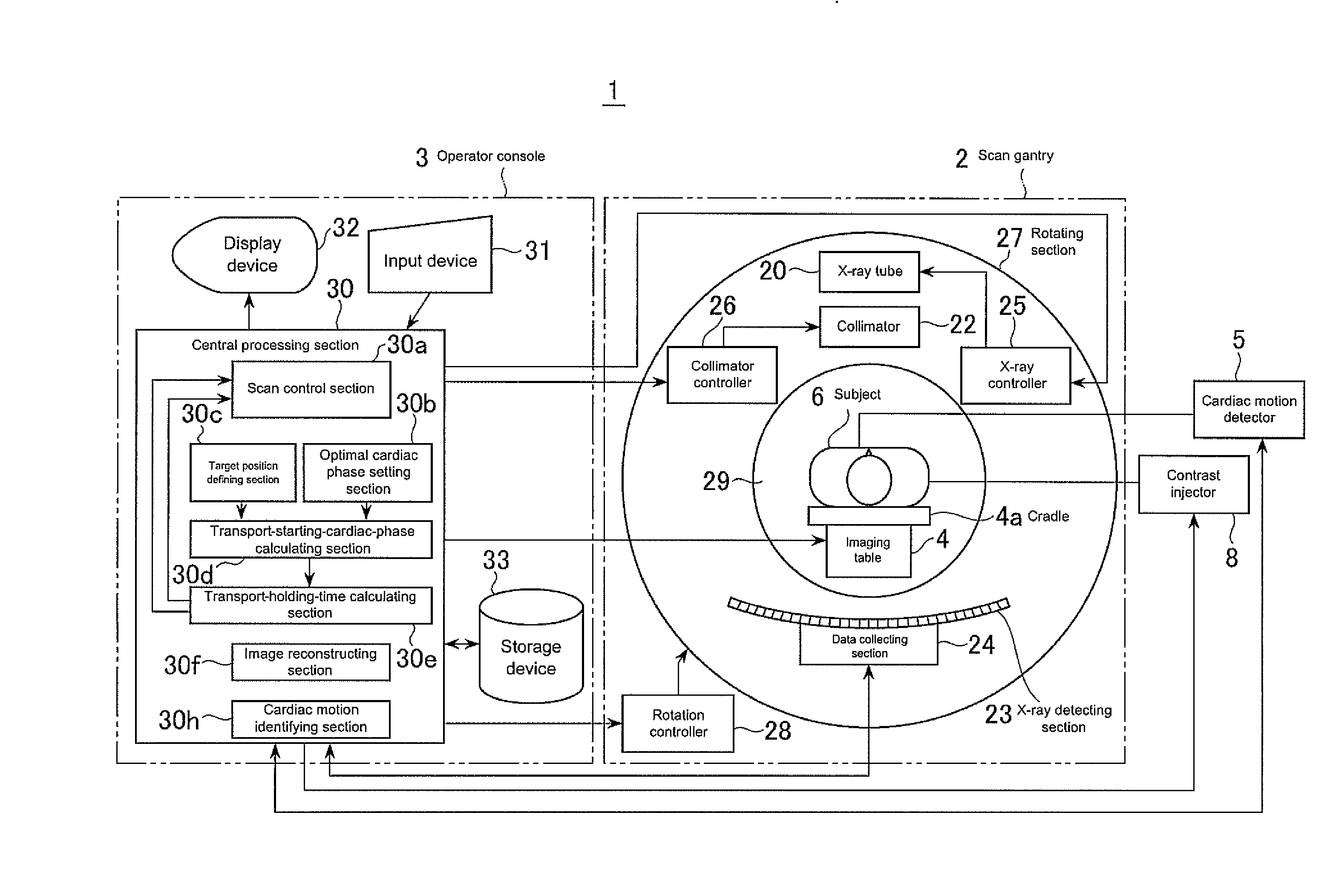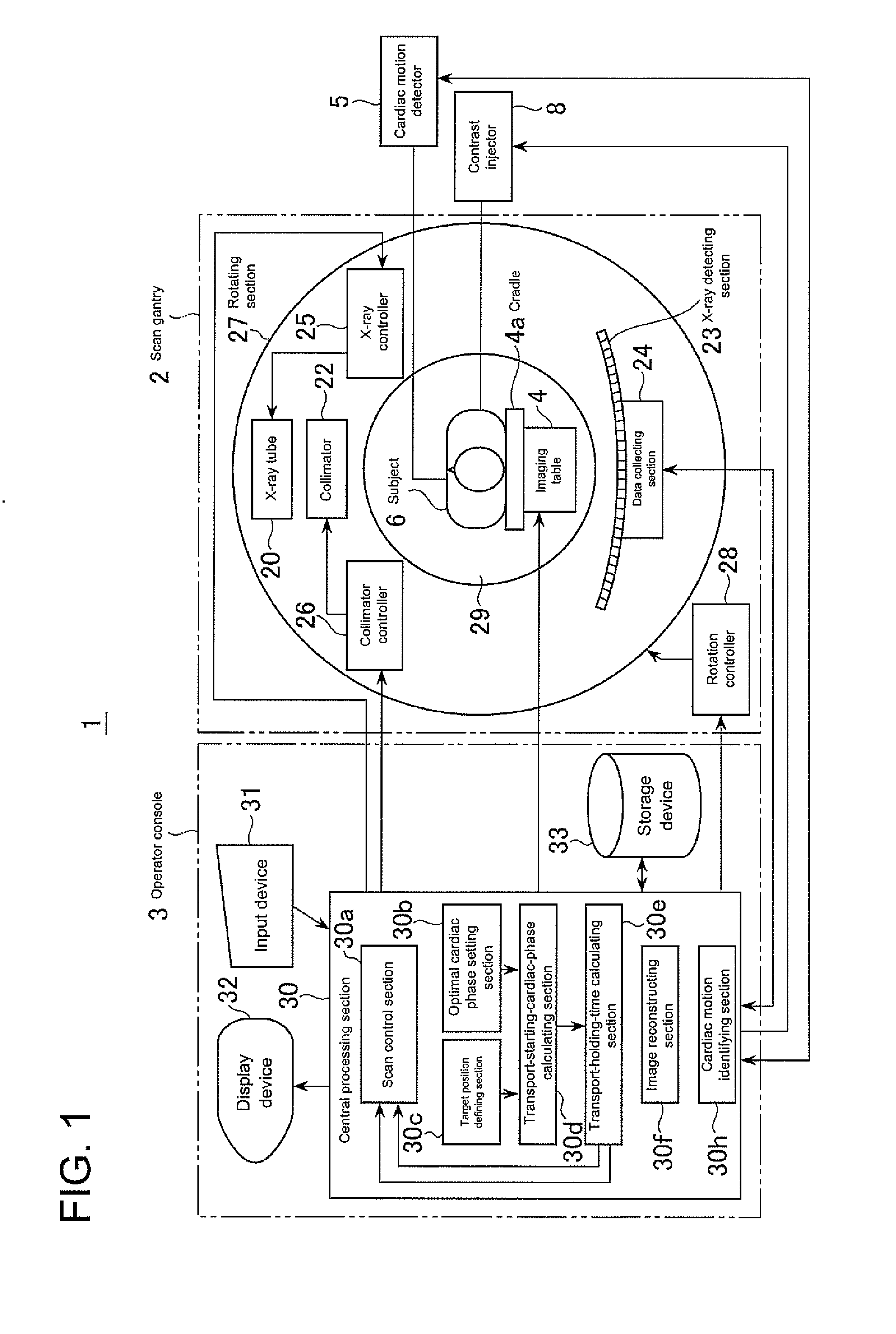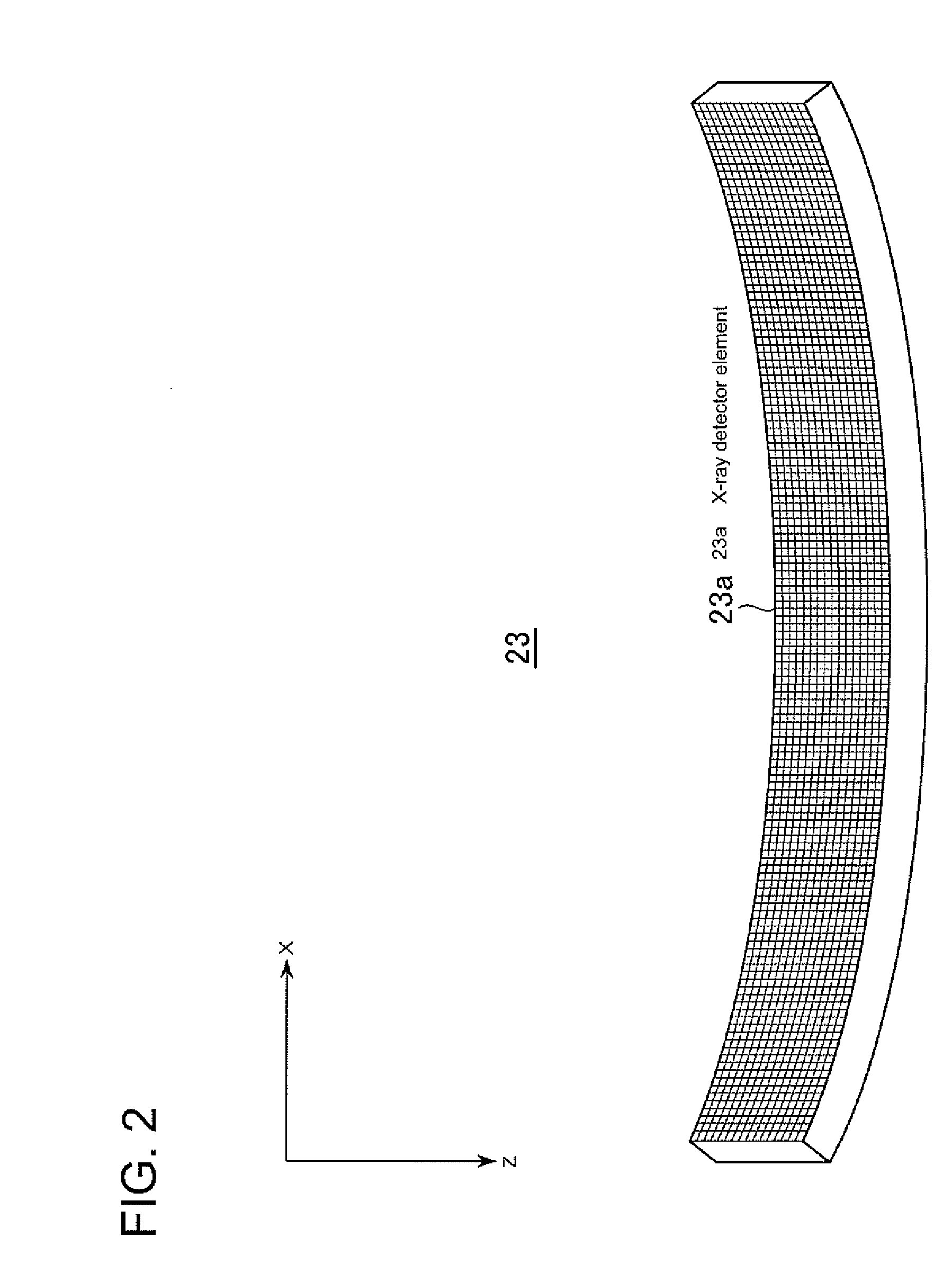X-ray ct apparatus
a computed tomography and x-ray technology, applied in tomography, applications, instruments, etc., can solve the problems of inability to image the whole heart, inhibit high-speed imaging, long subject time constraints, etc., and achieve the effect of reducing subject stress and high image quality
- Summary
- Abstract
- Description
- Claims
- Application Information
AI Technical Summary
Benefits of technology
Problems solved by technology
Method used
Image
Examples
Embodiment Construction
[0046]Now embodiments of the present invention will be described with reference to the accompanying drawings.
[0047]An X-ray CT apparatus in accordance with one embodiment of the present invention will be described.
[0048]FIG. 1 is a block diagram showing an overall configuration of an X-ray CT apparatus 1 of the present embodiment. As shown in FIG. 1, the X-ray CT apparatus 1 of the present embodiment comprises a scan gantry 2, an operator console 3, an imaging table 4, a cardiac motion detector 5, and a contrast injector 8.
[0049]The scan gantry 2 comprises an X-ray tube 20, a collimator 22, an X-ray detecting section 23, a data collecting section 24, an X-ray controller 25, a collimator controller 26, a rotating section 27, and a rotation controller 28. The scan gantry 2 has therein a bore 29 through which a cradle 4a of the imaging table 4 for placing thereon the subject 6 is transported, and the X-ray tube 20 and X-ray detecting section 23 are disposed to face each other across th...
PUM
 Login to View More
Login to View More Abstract
Description
Claims
Application Information
 Login to View More
Login to View More - R&D
- Intellectual Property
- Life Sciences
- Materials
- Tech Scout
- Unparalleled Data Quality
- Higher Quality Content
- 60% Fewer Hallucinations
Browse by: Latest US Patents, China's latest patents, Technical Efficacy Thesaurus, Application Domain, Technology Topic, Popular Technical Reports.
© 2025 PatSnap. All rights reserved.Legal|Privacy policy|Modern Slavery Act Transparency Statement|Sitemap|About US| Contact US: help@patsnap.com



